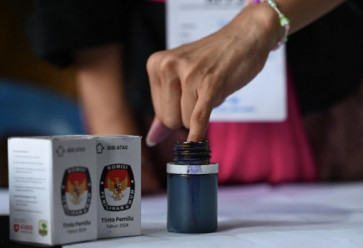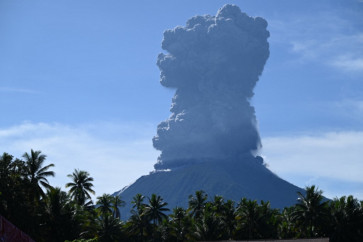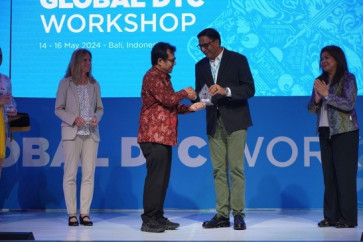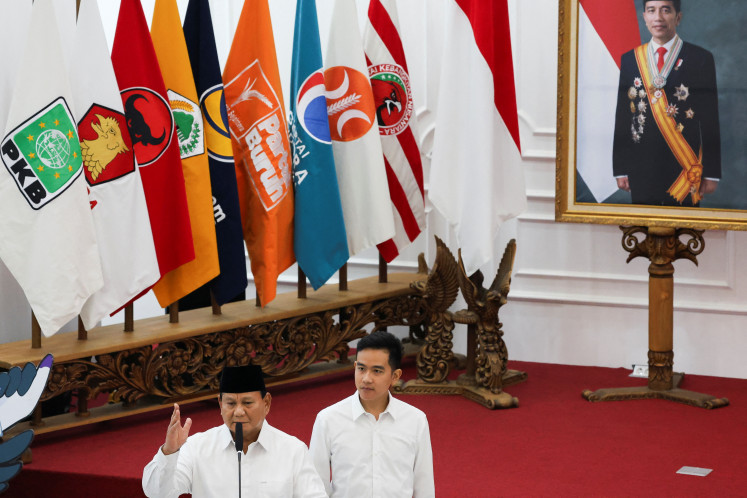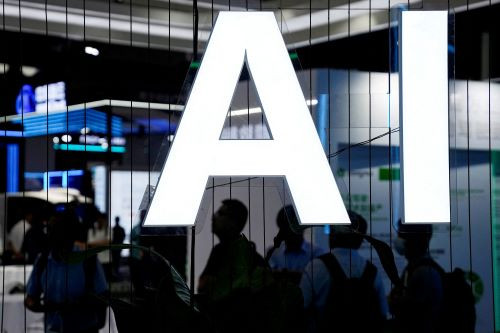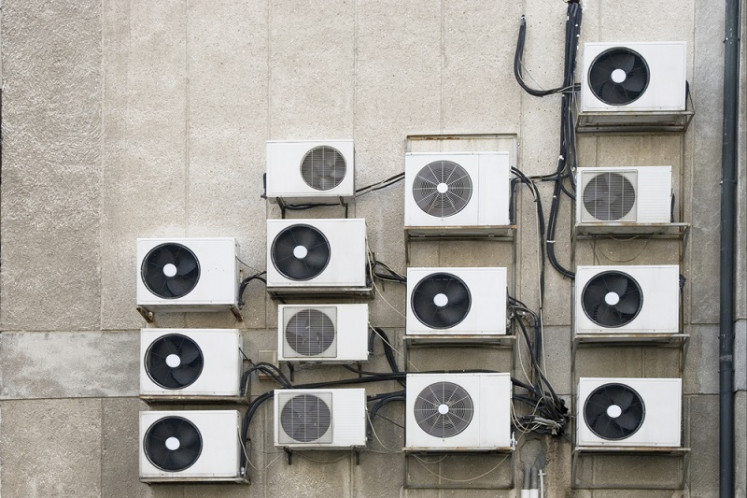Maritime-axis development to boost RI's GDP
More than two months after taking office, President Joko âJokowiâ Widodo has provided details of his maritime-axis agenda, hoping to float Indonesia into the upper middle-income bracket through maritime development
Change Size

More than two months after taking office, President Joko 'Jokowi' Widodo has provided details of his maritime-axis agenda, hoping to float Indonesia into the upper middle-income bracket through maritime development.
With the maritime-oriented development, the government aims to boost its GDP per capita from the current US$3,592 to $10,000.
In order to attain this, the Office of the Coordinating Maritime Affairs Minister has revealed plans to use the annual state budget allocation to focus on maritime development with four main objectives.
The first objective is to strengthen maritime sovereignty by improving maritime laws and international agreements and by finalizing the country's maritime-border disputes, according to Coordinating Minister Indroyono Soesilo.
Indroyono revealed that only 44.12 percent of the country's territorial waters had been mapped out. Furthermore, 54.66 percent of Indonesia's exclusive economic zone (EEZ) has been mapped, with 2,258.12 nautical miles to be finalized.
Aside from that, Indonesia also has unresolved maritime borders with Timor Leste, India and Thailand, all of which are still under discussion. Indroyono said he was aiming to conclude all matters pertaining to maritime borders by 2019, including optimizing the Rp 12 trillion ($967.5 million) under the auspices of the National Agency on Border Management (BNPP).
One example of this, Indroyono said, was the Energy and Mineral Resources Ministry's recent instruction to provide electricity to the country's 47 outermost islands by Aug. 17, to coincide with Indonesia's 70th Independence Day.
He also cited Presidential Regulation (Perpres) No. 178/2014 on the Sea Security Agency (Bakamla) as an important step toward strengthening Indonesia's maritime defense, by integrating its different agencies under one roof.
In pursuit of the country's second objective ' guaranteeing the welfare of its people by correctly managing natural resources and protecting the marine environment ' Indroyono said the government would continue the current efforts at combating illegal fishing, but would also be looking to start the development of aquaculture in 2015.
The government is aiming to reap $150 million of non-tax revenues in 2015, up from this year's $30 million. Indroyono said the government was looking to generate $2.5 billion in non-tax revenues by 2019.
It intends to increase fishery production to around 40-50 million tons per year through aquaculture from the current 7 million tons.
In terms of tourism, Indroyono said the government is looking to attract 10 million foreign tourists next year and 20 million in 2019, generating revenues of $24 billion by the end of its first five-year term.
The government is also looking to provide free visa entry to several countries, build seven marinas along primary yacht routes, and provide easy entry permits for sailing ships and cruises through Perpres No. 180/2014 on the provisions regarding foreign-yacht entry.
Indroyono said the government would provide more incentives, including slashing levies and restitutions, to the shipbuilding industry, which has only developed significantly on Batam island due to its status as a special economic zone (SEZ).
Another Rp 400 trillion would be used to finance the project to generate 35,000 megawatts of electric power, he said.
The fourth objective, encouraging development in human resources, science, technology and culture to grow a strong maritime mentality, will focus on building marine science-techno parks in three locations by 2019 to spark interest in technology and the sciences.

